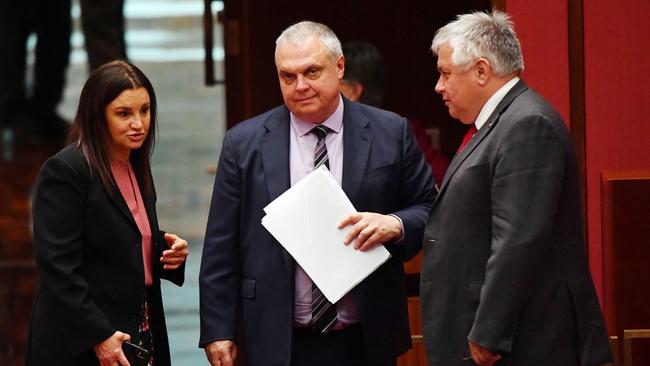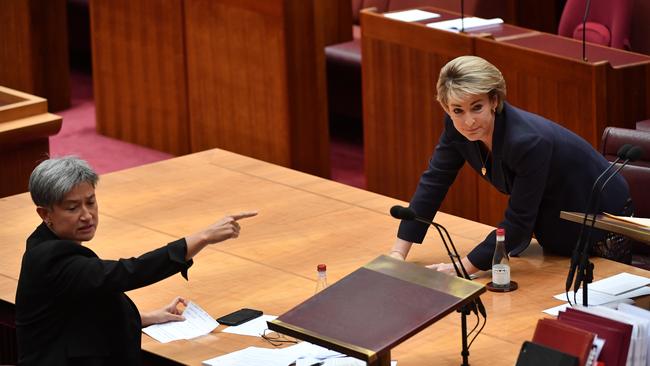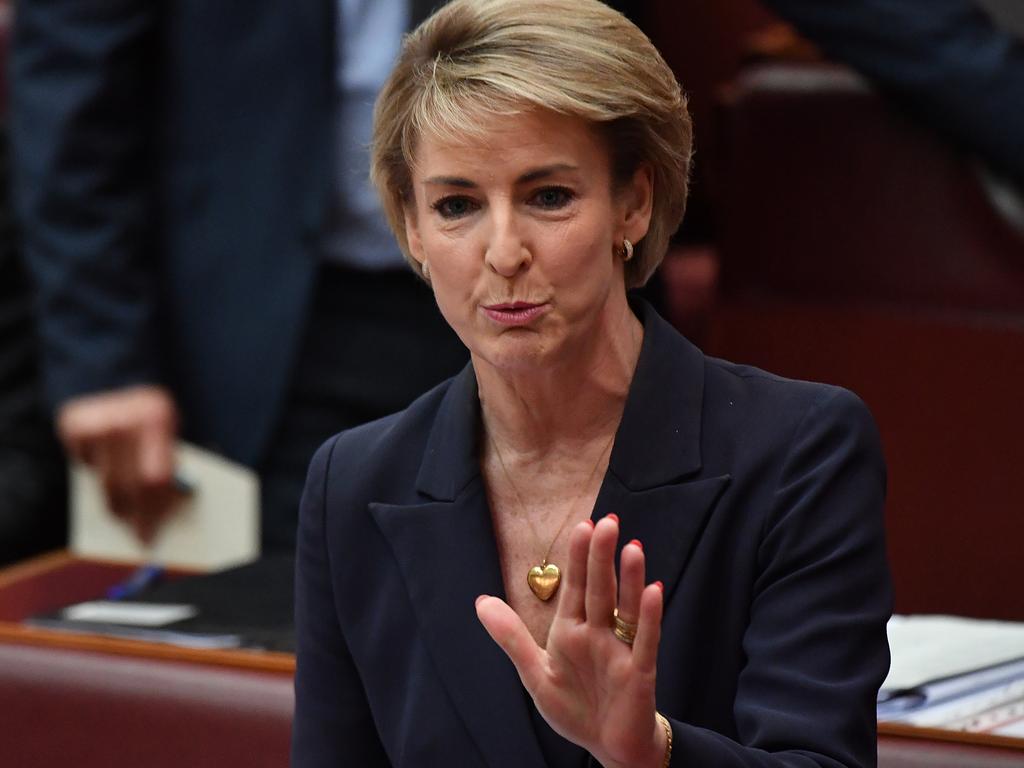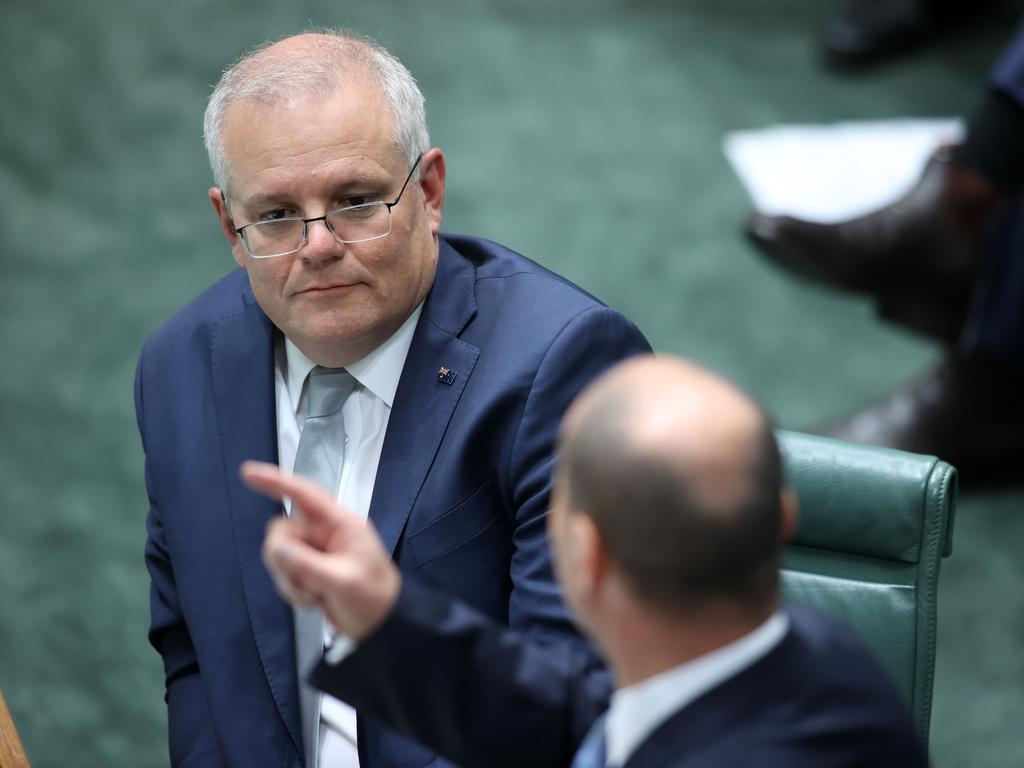Bungled IR reform bill a tragedy of errors
The inside story of Morrison’s IR humiliation.

Rex Patrick was so convinced the Coalition would fail to get its multi-pronged industrial relations bill through the Senate this week, he bet on it.
“I had a little wager with a senior adviser from Christian Porter’s office, saying I would pay him a bottle of Grange if he could get it through,” the Senate crossbencher tells Inquirer.
Patrick was proved correct. In the end, months of COVID-inspired talking, in person, over Zoom and WhatsApp, about the important but contested and often eye-glazing intricacies of workplace relations policy came to not much when the bill was gutted in the Senate.
Falling one vote short of the numbers required to pass changes to enterprise bargaining laws, the award system, and greenfields agreements on major projects, the government chose to ditch proposals to criminalise wage theft despite having the required support to legislate much-needed compliance measures to combat employers ripping off workers.
All that survived, thanks to the votes of One Nation and Centre Alliance’s Stirling Griff, was a schedule of casual employment changes designed to reduce the liability of employers found to have misclassified casuals and to create a new casual definition.
Both measures favour the Coalition’s business lobby constituency, and in particularly labour hire firms. While casuals will have greater opportunity to convert to permanent work, these changes are modest, falling short of a One Nation proposal, initially but privately agreed by the government, to reduce the effective eligibility period for conversion from 12 to six months.
Reform is the most misused, bastardised word in the workplace relations debate, deployed to disguise self-interest often at the expense of the national interest. But apart from reducing the financial exposure of companies, the government has been unable to address what employers, unions and labour market experts agree are serious deficiencies with the existing industrial relations system.
In March last year, the pandemic offered the government a unique opportunity, and there were initial promising signs. After decades of political warfare between the Coalition and the union movement, Porter and ACTU secretary Sally McManus established a constructive daily dialogue. Declaring “the usual playbooks have been binned,” Porter observed: “If you told me I was going to be BFF with Sally McManus three weeks ago, I wouldn’t have believed you.”
In May, Morrison urged business and union leaders to “put down the weapons” and seek to improve a system that was “not fit for purpose”.

Ten months on, meaningful policy change has not eventuated. There are myriad contributing factors for this failure, many political, others less obvious.
The current political firestorm engulfing Porter, and his subsequent leave, meant that the chief architect of the industrial relations bill was either completely distracted or absent in the crucial period leading up to the Senate vote.
Porter has been important during the working group process to try to get a degree of consensus between employers and unions. It was often hard going, as unions and employers struggled to put aside their years of hostility.
Indeed, government figures said employer representatives were regularly more difficult to deal with than union officials. Proposals such as an important agreement negotiated between the Business Council of Australia and the ACTU were torpedoed. The unions blame rival employer groups for killing the deal, claiming they resented the alliance.
When the bill was revealed, McManus said it contained many employer-friendly provisions that had not been agreed. The controversial changes to the Fair Work Act’s better off overall test — subsequently dumped — were sprung on the unions with little notice and swamped Porter’s attempts to sell the broader package.
Morrison and the government also maintained a tight timetable for the bill’s proposed passage, bringing it on for a vote just days after a Senate inquiry finalised its report into the legislation.
If the policy changes were so vital, why the rush? Patrick and Jacqui Lambie had called for the bill to be delayed until May, which was the next opportunity for the Senate to pass it. And while the bill’s changes were pitched as modest, they stretched across five complicated areas of workplace law, and the potential for consequences, intended or otherwise, required detailed scrutiny.
But with Porter sidelined, the government pushed on with Michaelia Cash acting as Industrial Relations Minister. Multiple sources involved in the process tell Inquirer that senior government figures insisted the bill be dealt with this week, and not prolonged into the federal budget sittings.
The government, the sources say, wanted the daily political narrative to be dominated by the post-COVID economic recovery and the vaccination rollout, not distracted or even derailed by a prolonged battle over the Coalition’s first attempt to make changes to the pay and conditions of workers since Work Choices.
In the aftermath of its stunning defeat, the Morrison government is seeking to apportion blame. It has attacked Labor for opposing the entire bill outright. But when did it become necessary for the opposition to sign on to the government’s contested agenda? Just ask Tony Abbott.
Dealing with a difficult Senate crossbench is not a new reality. Crossbenchers suggest the absence of Mathias Cormann as Senate leader was another factor in deliberations over the bill going pear-shaped. Labor and the unions accused the Coalition of spite when the wage theft provisions were withdrawn. But the government denies payback, insisting the decision was made to pull them once the proposed enterprise bargaining and award changes were doomed.
Back in 2019, before the pandemic, Porter promised to tackle wage theft, declaring “corporate Australia had been asleep at the wheel” when it came to ensuring workers were paid correctly. But now the government says it would not be fair to impose a new compliance regime on employers without reducing the complexity of awards and simplifying bargaining rules.
What is likely to be more unfair to many of Morrison’s “quiet Australians” is employers not being held adequately accountable when they are deliberately not paying workers their basic legal entitlements.
As for Patrick’s Grange bet with Porter’s adviser, the crossbencher says, given the result: “I might have to buy him a bottle, but I’ll only let him sniff the cork.”





To join the conversation, please log in. Don't have an account? Register
Join the conversation, you are commenting as Logout